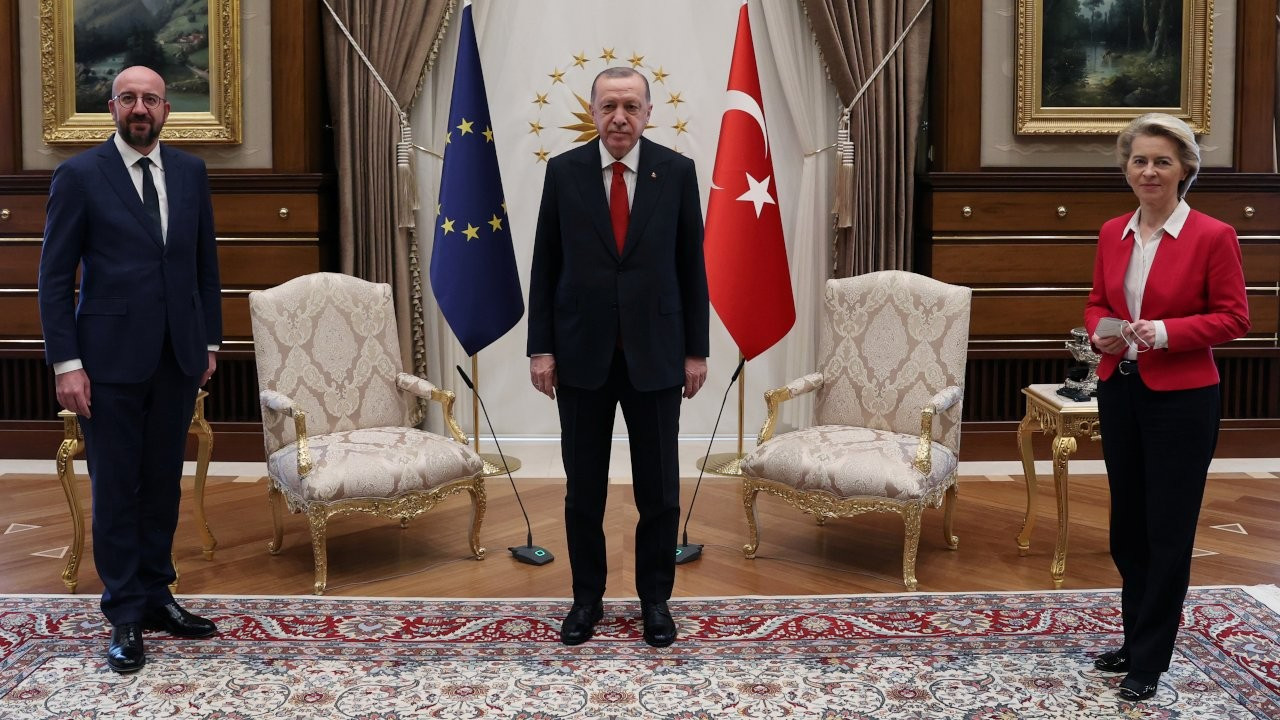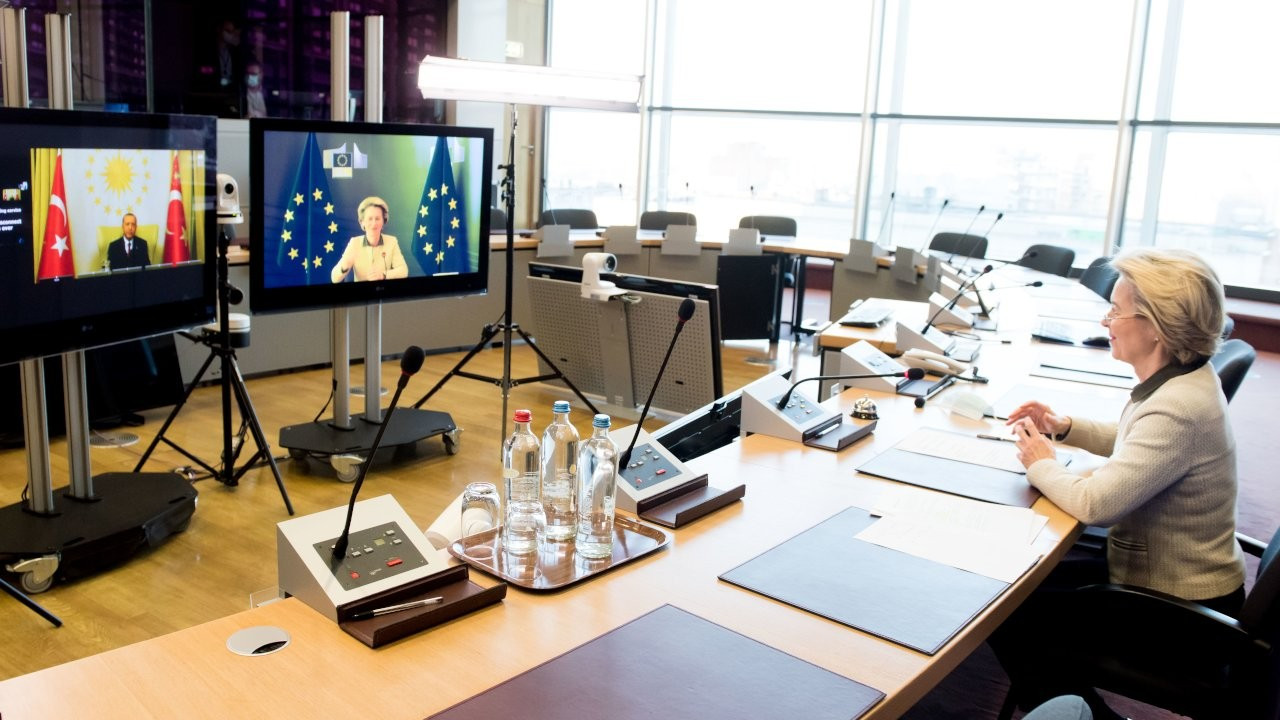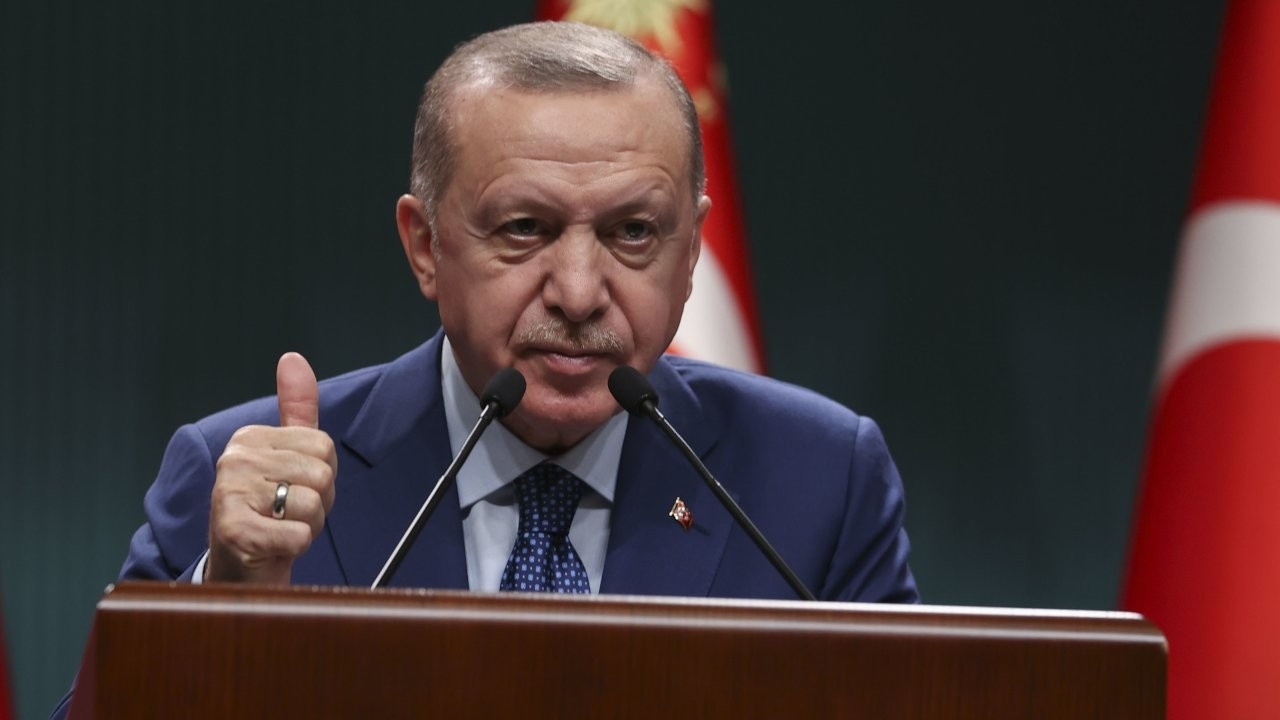Turkish officials say rivalry among EU chiefs to blame for 'sofagate'
Turkish officials have said that the rivalry between Michel and von der Leyen is to blame for the sofa incident in Ankara, while Michel said that “strict interpretation by the Turkish services of protocol rules” had “produced a distressing situation — different, even diminished, treatment of the president of the European Commission.”
Duvar English
Turkish officials have said that the rivalry among European Union leaders is to blame for the sofa incident that left European Commission President Ursula von der Leyen standing as Turkish President Recep Tayyip Erdoğan and EU Council President Charles Michel sat down during a meeting in the capital Ankara.
Erdoğan's meeting with the EU leaders on April 6 quickly descended into what media outlets have dubbed "sofagate" and the Turkish side was accused of misogyny. Analysts and social media users have also questioned whether not giving von der Leyen an equal seat was a deliberate snub.
Von der Leyen left baffled after not being given an equal seat during meeting with Erdoğan #Turkey https://t.co/KI9EMKaLgV pic.twitter.com/WEkzQCbN3a
— Duvar English (@DuvarEnglish) April 7, 2021
Turkish officials denied responsibility for the "chair gaffe" and told Middle East Eye that it was all the EU delegation's fault. They blamed a rivalry within the EU, between Michel and von der Leyen, who are typically seen as equivalents within the Union.
One senior Turkish official said Michel's staff agreed on the seating at the presidency before the visit took place. "However there was no representative from von der Leyen's team," the official said. "So we didn't get their input."
A second senior Turkish official said every arrangement during the visit was made in collaboration with EU officials who visited the country before the summit took place.
Turkish officials were swift to try to make it up to the European Commission president.
The government is said to have offered the EU delegation a different seating arrangement during lunch: Erdoğan would sit directly opposite both Michel and von der Leyen. Yet Michel's team reportedly rejected the offer, and Michel alone sat across from Erdoğan, with von der Leyen again to the side.
"Michel's team only accepted to give von der Leyen a seat in the same height and type," the first senior official said.
EU Commission Spokesperson Eric Mamer told the media on April 7 that von der Leyen was surprised by the incident, but she chose to prioritize substance over questions of form or protocol.
"It is not my job to try and judge what was behind the fact that we offered her one type of seat over another," he said.
Politico reported on April 7 that Michel's team thought everything ran according to protocol, as Michel was higher in the diplomatic pecking order, seemingly confirming Turkish officials' reports. However, von der Leyen's spokesperson insisted she should have been seated exactly in the same manner as the president of the European Council.
Michel insisted the images of the meeting had given a false impression. He did not apologize for his actions nor did he suggest he was in any way to blame.
“Some of the images that have been transmitted have given the impression that I may have been insensitive to this situation. Nothing is further from reality or from my profound feelings,” said the former Belgian prime minister, writing in French.
He said “strict interpretation by the Turkish services of protocol rules” had “produced a distressing situation — different, even diminished, treatment of the president of the European Commission.”
But Michel insisted that while noting the “regrettable character of the situation,” he and von der Leyen had chosen not to aggravate it with a public incident and to prioritize the substance of their discussion.
An EU official told Politico "the Turks did not seek to cause any incident, they respected protocol and so did we."

 Von der Leyen left baffled after not being given an equal seat during meeting with ErdoğanWomen
Von der Leyen left baffled after not being given an equal seat during meeting with ErdoğanWomen EU has priority in Turkey’s agenda: ErdoğanDiplomacy
EU has priority in Turkey’s agenda: ErdoğanDiplomacy EU-Turkey rapprochement 'depends on Erdoğan'Diplomacy
EU-Turkey rapprochement 'depends on Erdoğan'Diplomacy